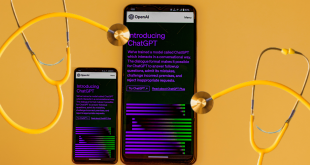Police have offered to give $40,000 for information after the blanket of a missing American baby from the state of Wisconsin was found weeks after his disappearance, local police have revealed. The Police Department officials said that a red and white plaid blanket found earlier in this investigation was confirmed …
Read More »Rep. Tim Burchett Claims Members Of Congress Have Been Blackmailed Over Jeffrey Epstein Information
Opinion Screenshot: PalmBeachPost YouTube Video Representative Tim Burchett (R-TN) made a startling accusation on Thursday, claiming that he believes that members of Congress are “compromised” into not providing public information on notorious sex predator Jeffrey Epstein. Burchett’s comments came during a discussion with conservative political analyst Benny Johnson. The pair …
Read More »Pains being felt over Tinubu’s reforms are short-term sacrifice to make for the kind of country that we deserve ? Minister of Information
Minister of Information and National Orientation, Mohammed Idris has said that President Bola Tinubu’s reforms are necessary in rebuilding Nigeria even though they might be tough and painful. Idris who spoke at a press briefing on Friday, October 27, on the backdrop of the Supreme Court judgement, urged Nigerians …
Read More »Using Chatbots for health advice: Tips to avoid misleading information
We expect medical professionals to give us reliable information about ourselves and potential treatments so that we can make informed decisions about which (if any) medicine or other intervention we need. If your doctor instead “bullshits” you (yes – this term has been used in academic publications to refer to …
Read More »Gunmen abduct Commissioner for Information in Benue
The Commissioner for Information, Culture and Tourism in Benue state, Matthew Abo, has been abducted. Abo was abducted from his residence at his hometown in Zaki-Biam community of Ukum Local Government Area of the state on Sunday night, September 25. According to reports, Abo was abducted by gunmen …
Read More »BBNaija ‘All Stars’: Prince, Lucy Speak On Leaking Sensitive Information To Housemates
Evicted Big Brother Naija ‘All Stars’ houseguests Prince Nelson and Lucy Edet have denied leaking sensitive information about the ongoing show to the housemates. Naija News recalls that Lucy, Kim Oprah, Sholzy and Prince were brought into Biggie House two weeks ago, but two got evicted during the live show …
Read More »Singer Britney Spears believes ex-husband Sam Asghari was ‘secretly working’ with her estranged dad to feed him information to keep her locked in 13-year conservatorship
Pop singer, Britney Spears believes that ex-husband Sam Asghari was ‘secretly working’ with her estranged dad Jamie and feeding him information that would help keep her into her 13-year conservatorship. Sam, 29, filed for divorce from Britney, 41, earlier this month after just 13 months of marriage, however a …
Read More »We won’t tell lies to defend government ? Information Minister
Minister of Information and National orientation, Muhammed Idris, has said that the ministry he heads will not tell lies to defend the government. Addressing reporters after being sworn in, Idris said they will be transparent and truthful while giving out information. Asides from stating that the ministry would …
Read More »Russia Takes Its Ukraine Information War Into Video Games
Russian propaganda is spreading into the world’s video games. In Minecraft, the immersive game owned by Microsoft, Russian players re-enacted the battle for Soledar, a city in Ukraine that Russian forces captured in January, posting a video of the game on their country’s most popular social media network, VKontakte. A …
Read More »‘Connecting the mass burial to Lekki tollgate is post-election hallucination – Lagos Commissioner for Information, Gbenga Omotoso, says
The Commissioner for Information and Strategy in Lagos state, Gbenga Omotoso, says connecting the mass burial to the Lekki tollgate can be described as “post-election hallucination.” Omotoso was a guest on Arise TV on Tuesday July 25, to speak about the leaked memo showing the approval of N61 million …
Read More » Top Naija News – Nigerian news, breaking news, daily news in Nigeria Top Naija News – Nigerian news, breaking news, daily news updates in Nigeria. We are a dedicated news curation blog from various sources. topnaijanews 24/7.
Top Naija News – Nigerian news, breaking news, daily news in Nigeria Top Naija News – Nigerian news, breaking news, daily news updates in Nigeria. We are a dedicated news curation blog from various sources. topnaijanews 24/7.







